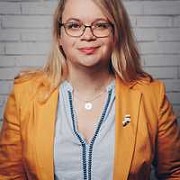Authors
Nadiya Kiss1; 1 University of Erfurt, GermanyDiscussion
According to the IAB-BiB/FReDA-BAMF-SOEP Survey on Ukrainian Refugees in Germany, more than 70% of refugees from Ukraine possess higher education. Academics from various fields constitute a significant portion of the overall community of forced migrants. According to the UNESCO report, as of January 2024, 12% of Ukrainian researchers and university instructors were compelled to migrate or relocate due to the war, with 6,000 Ukrainian academics fleeing their home country after February 2022. Of these, more than 1,000 now reside in Germany, which is leading in the number of accepted displaced scholars from Ukraine; hence, the number could be much higher, since many scholars are also in Germany as private persons, without affiliation to German institutions. Immediately following the full-scale invasion, German universities and institutions launched numerous programs to support scholars from Ukraine. Examples include MSCA4UKRAINE and the Phillip Schwartz Fellowship by the Alexander Humboldt Foundation and the Funding for Refugee Scholars and Scientists from Ukraine provided by the Volkswagen Foundation. As Gusejnova et al. (2024:4) pointed out: “…it is noteworthy that the academic solidarity networks that have emerged in the face of the war in Ukraine are unprecedented in the history of international responses to war”. Many Ukrainian academics, particularly those from the conflict zones, embraced the opportunities. Institutional connections in higher education between Ukraine and Germany predated the war, but their significance was heightened and deepened by its impact. The paper employs postcolonial lens in the study of the Ukrainian academic diaspora. This approach has already been used in the volume of essays by migrant scholars to describe precarity and discrimination faced in academia, as well as resilience. Precarity is one of the distinct features of Ukrainian forced migrants: “…the relatively new war situation and the uncertainty regarding the further course of the war and its outcome contributes to particularly high levels of uncertainty among refugees”. In the case of displaced academics, it is deepened by the situation of short-term fellowships, projects, or university contracts. They often change their locations, constantly looking for new possibilities in different countries. Scholars of humanities and social science, as is often voiced during conferences on Ukrainian studies, also face the problem of coloniality of knowledge concerning Ukrainian culture, language, history, and sociopolitical situation. 

